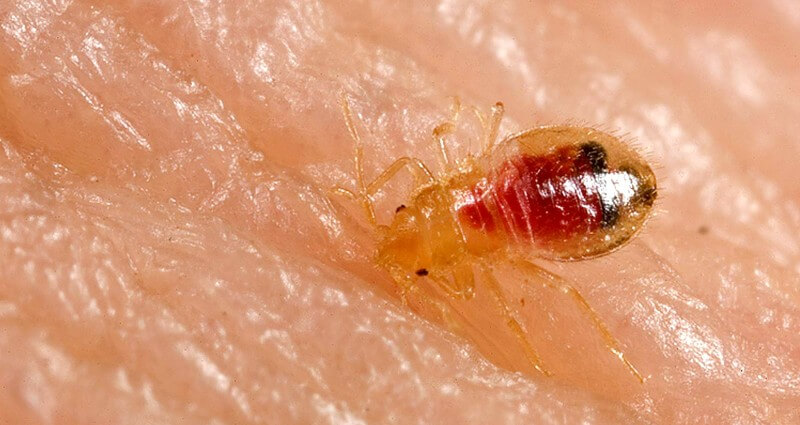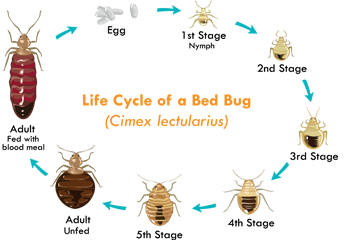Expert Kings Pest Control Cincinnati: Your Trusted Pest control experts
Expert Kings Pest Control Cincinnati: Your Trusted Pest control experts
Blog Article
A Malfunction of the Numerous Kinds Of Insect Control Solutions
In the world of parasite control, a multitude of techniques exist to resolve and combat the presence of unwanted creatures. From the standard usage of chemical pesticides to much more ingenious organic control remedies, each strategy offers distinct advantages and restrictions. As we browse via the varied landscape of parasite control options, recognizing the details of each method becomes critical in figuring out one of the most efficient strategy. Remain tuned as we check out the nuanced globe of bug control methods and uncover just how each kind plays a special function in securing our environments.
Chemical Pesticides
Chemical chemicals are generally utilized in pest control to effectively remove a wide variety of insects and various other bugs. These pesticides function by targeting the nerve system of the insects, disrupting their typical functions, and inevitably causing their demise. Using chemical pesticides has been a staple in the bug control market for years because of their efficiency and fast results.

Nonetheless, it is important to use chemical pesticides with caution due to their possible harmful impacts on the environment and non-target species. Improper application or overuse of these pesticides can lead to pollution, harm to advantageous insects, and resistance development in pest populations. It is important to follow safety standards and laws when utilizing chemical pesticides for bug control.
Biological Control Methods
Thinking about the potential ecological effects and threats connected with chemical pesticides, organic control techniques offer an even more sustainable strategy to managing parasite populations. Organic control involves making use of all-natural opponents, such as parasites, killers, and pathogens, to suppress bug populaces. This method is frequently more targeted, impacting just the specific insect types while minimizing damage to valuable insects, humans, and the setting.

One benefit of biological control is its lasting effectiveness. As soon as established, all-natural adversaries can assist manage pest populaces continuously without the need for duplicated applications of pesticides. Additionally, organic control is frequently more cost-efficient and can help reduce chemical resistance in bug populations with time. Generally, biological control he said approaches use a sustainable and eco friendly option to pest administration.

Mechanical Bug Control
Mechanical parasite control involves the physical manipulation or removal of bugs to handle their populaces properly. This method is typically used combined with various other parasite control strategies for extensive insect administration. One typical instance of mechanical bug control is making use of catches to record rodents or insects. These traps can be set up in strategic locations where pests are known to dwell, helping to decrease their numbers.
One more mechanical method is using obstacles such as webs, fences, or screens to block pests from entering specific locations. By literally avoiding pests from accessing an area, the chance of invasions or damage can be significantly lowered. Furthermore, manual approaches like handpicking bugs off plants or frameworks can be reliable for smaller-scale invasions.
While mechanical insect control approaches can be labor-intensive, they use a non-chemical alternative that can be sustainable and eco friendly. By targeting pests straight, mechanical control methods can help maintain pest populaces in check without depending on chemicals.
Natural Treatments
Utilizing natural treatments for bug control supplies a sustainable and environmentally friendly technique to taking care of parasite populaces without resorting to chemical treatments. All-natural solutions entail making use of substances derived from plants, minerals, or various other normally taking place resources to hinder or remove parasites.
Furthermore, vital oils such as tea tree oil or neem oil have insecticidal properties that can effectively control parasites while being secure for the setting. One more natural treatment is introducing beneficial insects like ladybugs or hoping mantises to your yard to prey on hazardous insects. By incorporating these all-natural options into insect management approaches, people can decrease their reliance on artificial chemicals and advertise a healthier, much more balanced ecosystem.
Integrated Parasite Monitoring
Integrated Insect Management (IPM) is a thorough technique that integrates numerous methods to efficiently control pest populaces while decreasing dangers to human health and the setting. IPM includes the integration of several pest control approaches such as biological control, environment control, alteration of cultural techniques, and using resistant plant ranges. By utilizing a combination of these strategies, IPM aims to lower dependence on chemical pesticides, which can have adverse influence on ecosystems and human health and wellness.
One key element of IPM is the focus on prevention. By applying actions to stop pest invasions prior to they take place, such as keeping proper cleanliness and securing entry points, the requirement for reactive bug control actions is reduced. Surveillance and regular evaluations play a crucial function in IPM, enabling very early detection of insect concerns and punctual treatment.
Verdict
Finally, the various types of bug control remedies offer a variety of choices for successfully taking care of parasite infestations. Chemical pesticides offer quick elimination yet might have ecological threats. Biological control interior pest control methods utilize natural predators to control insects. Mechanical bug control includes physical obstacles or traps. Natural remedies offer non-toxic alternatives. Integrated Insect Management combines multiple techniques for an alternative method to pest control. Each technique has its own benefits and drawbacks, and selecting this hyperlink one of the most proper option depends upon the certain insect problem at hand.
Chemical chemicals are typically made use of in bug control to efficiently eliminate a vast variety of insects and various other insects.Mechanical pest control entails the physical control or elimination of pests to manage their populaces properly (Kings cincinnati pest control).Using all-natural treatments for insect control offers a lasting and eco-friendly approach to managing insect populaces without resorting to chemical treatments.Integrated Insect Management (IPM) is a detailed approach that integrates different techniques to effectively manage pest populations while reducing threats to human health and the atmosphere.In verdict, the various types of parasite control solutions use an array of options for effectively handling parasite infestations
Report this page